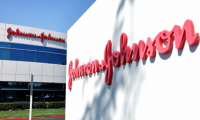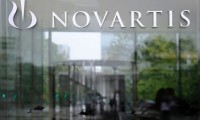-
J&J, AZ/Daiichi Sankyo cancer therapies lead Clarivate’s annual rundown of notable new meds
- Source: drugdu
- 153
- January 19, 2024
-
US agency nixes Seagen patent, handing Daiichi Sankyo a win in long-running Enhertu entanglement
- Source: drugdu
- 146
- January 19, 2024
-
S&P Global Releases Healthcare Industry Outlook for 2024
- Source: drugdu
- 184
- January 15, 2024
-
GSK
- Source: drugdu
- 168
- January 12, 2024
-
J&J Joins the Cancer ADC Dealmaking Spree With $2B Ambrx Acquisition
- Source: drugdu
- 137
- January 10, 2024
-
As cancer players jump head-first into ADC field, Novartis CEO explains how he’s resisted the temptation
- Source: drugdu
- 90
- January 10, 2024
-
AbbVie ends 2023 on a high taking the leading spots as the biggest drug ad spender in December
- Source: drugdu
- 157
- January 10, 2024
-
BMS buys Karuna for US$ 14 billion; Astra-Ionis’ nerve damage drug bags FDA nod
- Source: drugdu
- 123
- January 8, 2024
-
Novartis Returns to Voyager Therapeutics to Reach New Gene Therapy Destinations
- Source: drugdu
- 203
- January 4, 2024
-
Inside AbbVie’s $10B buyout of ImmunoGen—and the bidding war it swooped in on
- Source: drugdu
- 179
- January 4, 2024
your submission has already been received.
OK
Subscribe
Please enter a valid Email address!
Submit
The most relevant industry news & insight will be sent to you every two weeks.












